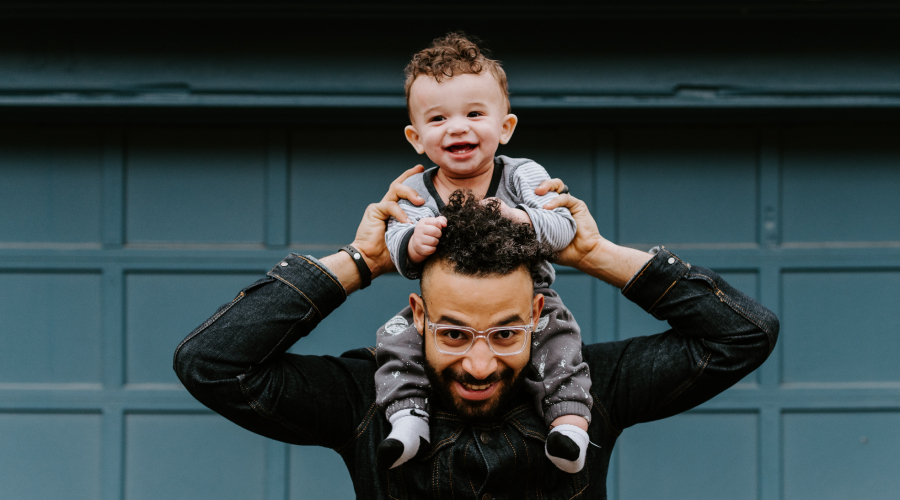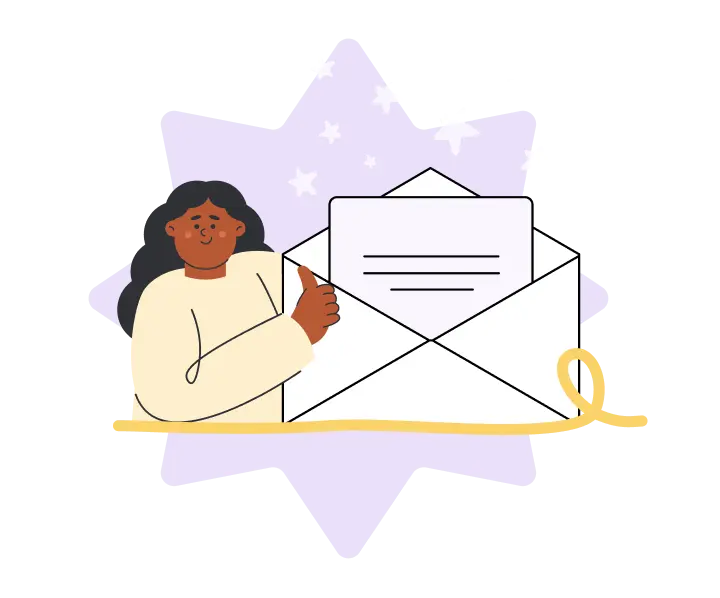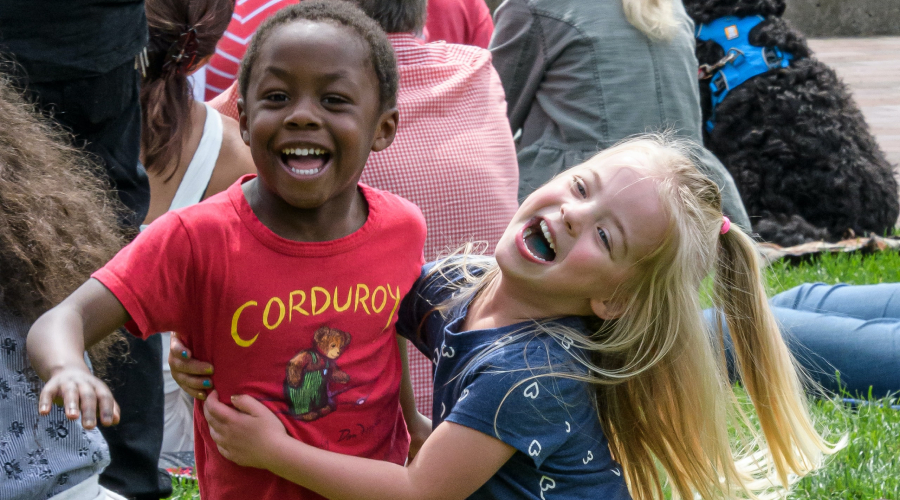settings
children
With Famly since
We need to bring the conversation about racism and anti-LGBTQIA+ back to the Early Years. Right now, we have an opportunity to trailblaze an inclusive dialogue through Early Years practices, to allow this conversation to be at the centre of inclusive practice and change the way we think and act about race and inclusion.
There’s no magic looking glass for us to see what changes may happen in the future, but one thing is certain – the discussions we have in Early Years will ultimately have a massive impact on the world our children will grow up in.
Let’s relate this to the shock reactions from non-Black people towards the racist responses about Sainsbury’s latest Christmas advert that featured a dark-skinned Black family. These are indicative of the fact that we are yet to get to grips with the realities of how deeply racism is festering within our society. This reaction is only accompanying the overwhelming evidence by way of statistical data, reports, write ups, blogs, podcasts and media. These have always stated that Black and Brown communities are suffering because of racism, but the apparent blindness of the Early Years sector to acknowledge that this same racism penetrates our sector too is disappointing at best.
That’s why we want to help Early Years practitioners in having deeper discussions around anti-racist practice and representation of LGBTQIA+ within their settings.
The big ideas
The 6 Key Areas in Inclusive Practice
One of the most important ways to change the way we approach this is to remind ourselves to never lose sight of what ‘child-centred inclusive practice’ means. We need to keep the child at the heart of inclusive dialogue, and recognise that each child is unique and diverse in their own way.
The six themes below must be addressed in order to completely redefine how we approach Racism and Anti-LGBTQIA+, and we are using similar goals in our research into how these fit into Early Years curricula.
- Anti-racist pedagogy
- LGBTQIA+ representation
- Cultural capital
- Access to provision
- Ableism
- National narrative
Today, we’re going to tackle the ideas of anti-racist pedagogy and LGBTQIA+ representation in Early Years settings, and discuss why our current attitude towards them has to change.

The way we talk about Race isn’t good enough
The tensions amongst professionals with regards to topics of race are clearly felt in the sector. I have seen and observed the numerous ways conversations about race are derailed and downplayed. I have questioned if it’s a good idea to focus on race as a specific area in the Early Years sector, when a lot of the time the message isn’t getting through to people. But then I remember how important it is to be an advocate for the sake of Black children.
Early Years does not call out racist practices systematically and structurally, which is why we need to place a greater focus on race as a topic of discussion. This need to ‘not rock the boat’ in the sector has used “kindness” to mask the real need for change. In order to not cause a fuss, the conversation ends with the idea that we all need to be kind to one another. But we still have structures in place that oppress and marginalise certain groups, and simply being “kind” does not lead us along the path to equality.
“Safe spaces” are a good example of these kinds of limits in our current approach to inclusion in our settings. Non-white professionals in the sector may fear being labeled as troublesome if they call out racism too boldly, or even just bring it up as a discussion by using these spaces. This shows why we need to make a much bigger effort, and why the act of having something such as a safe space should not be seen as an ultimate solution to end harmful racist practices. They are simply an easy way out of having a difficult discussion.
This leads into the idea of tone-policing. We need to stray from the obsession with being polite while calling out racism. Not only does this detract from the fact that racism is being experienced, but it’s actually extremely harmful – particularly because it places the focus on the wrong person. We are essentially giving the person experiencing racism the responsibility to call it out and do something about it, which shouldn’t be the case at all.
Why our current hierarchy isn’t helping
Why is it that the responsibility too often falls on the person on the receiving end of racism? And why aren’t we doing more about it? It’s not the fault of Early Years for creating these inequalities – if we look outside the walls of Early Years settings, the power structure within society is to blame.
White, middle-class, cisgender men are kings of the castle. This supremacist ideology does not make room for anti-racism or inclusive practices as it doesn’t directly benefit these men at the top of the pyramid. Women are part of this structure too, as they are fighting a gender-equality battle for power in today’s world.
I’d like to bring up Jannette DeFelice’s point that it’s ‘impossible for the white supremacist male hierarchy to be turned on its head when so many white women are “entrenched” in it.’ It’s hard for women to fight this concept of white supremacy and patriarchy, partly because many white women are complicit in maintaining it. They are so deeply ingrained in the male supremacist dialogue that it is difficult to remove themselves from it as they battle to take back their own power.
This power struggle does not give Equality, Diversity and Inclusion the space it demands in conversation. Women’s struggle in the battle for dominance heavily detracts from the importance and attention we also need to give to anti-racist pedagogy.
But why is this so important to bring up in the context of Early Years settings? Because 80% of Early Years practitioners are white females – that’s why. This racial imbalance isn’t being discussed, and it really should be.
We need to acknowledge that we too play a role in maintaining this dominant white-cisgender-male narrative. If we don’t realise that we are all part of the problem, then we won’t be able to fix it.

Whiteness at the heart of Early Years
We can’t get to the root of the weed of racism and homophobia if the sector is not committed to digging deep to ensure that every child matters. Anti-racist practice requires some personal commitment from those white colleagues in the sector to take this bull by the metaphorical horns and act for all mankind.
As previously stated, Early Years is still part of the supremacist framework. We need to explore ‘whiteness’ in our sector, as it lies at the very heart of it. We need only to look at the lack of representation with regards to Early Years experts, or the people who hold editorial positions in the sector to see that there are stark racial inequalities both directly within and outside of Early Years settings.
We also need to address the use of a ‘token’ non-white individual to defend of our own non-inclusive practice. Too often, an individual of South-Asian heritage is used to represent inclusivity as a BAME individual. However, how can they be used as a weapon to fight a challenge about the absence of Black speakers in the room? This is why I believe BAME to be the most unhelpful term coined in recent times.
What can we do about this? Within my work, I have explored the need to eliminate fear in anti-racist practice. This fear of ‘getting it wrong’ when we talk about race should not stop us from having open discussions about it. These discussions are the way for us to get closer to doing something about it. The only way for us to embrace and include anti-racist practices is from those who are white in the sector – we need their commitment to the fight.
LGBTQIA+ Representation
Prejudice and discrimination are rife in society, and these dispositions are learnt in Early Years. Being inclusive from an early age is absolutely key if we are to counteract these issues in today’s society, and become as inclusive as we can be.
Over the past 20 years, research has become much stronger in showing the importance of dealing with diversity and discussing prejudice in early childhood education. However, it’s not just about being inclusive towards the diversity of a child’s own culture and what kind of family environment they have.
The way children understand practices towards diversity are made up of the things that surround them in their daily lives – they build their understanding around the things they are told and exposed to. That’s why Early Years professionals play a key role in children’s perception of diversity and differences. From their actions to their teaching and curriculum, they are giving children a representation of diversity.
The same applies if they avoid certain topics – that has a massive impact on a child’s perception of diversity, too. Topics that are ‘irrelevant’ or ‘inappropriate’ to address with children, such as social justice issues that oppress the lives of Lesbian, Gay, Bisexual, Trans, Queer, Intersex and Asexual individuals are not part of the discussion. How can diversity truly be discussed if we are silencing these topics altogether?
We need to break down the myth that issues affecting the lives of sexual minorities have no bearing or relevance to the lives of heterosexuals and this is why it is imperative to allow LGBTQIA+ children and families to have a voice, be seen and heard within a national sector endorsed Early Years Guidance.
How we can make a difference
Our educational settings need to become clear and representative of the national narrative – they need to reflect the real world and a child’s cultural capital. We can’t just raise children’s awareness of family diversity and diversity in the home – it doesn’t go far enough.
We need to let children know that if you are a child, a parent or a sibling, and you are LGBTQIA+ or a Person of Colour – you matter! We need to put representation of diversity into the way we treat the individual child – we need to put this into Early Years policies that place the uniqueness of the child at the centre.
Instilling these values of uniqueness and acceptance early on in a child’s experiences is key – and we can only do that by teaching them about humanity, racism, sexism, homophobia and the truth about the society we live in.

We need to celebrate Race and Sexual Identity
Instead of marginalisation and silencing of sexual identity or pushing racism under the carpet within Early Years, let’s celebrate. Let’s allow ourselves to learn and think of ways within our practice to allow the child to identify with their own values, value their own positionality without us as Early Years professionals doing that for them.
It’s crucial that early childhood educators do not fall into the trap of assuming that just because they can’t physically see how a child is different, that it means it isn’t there. And in turn, that it isn’t relevant to talk to the child about diversity. There are many LGBTQIA+ and Black families who are present in Early Years settings who are forced to remain silent and invisible – they do not feel as if they are able to use their voice in a society that is still built on homophobia and racism.
That also applies to the environment we give children, not just the way that we talk to them.
How you can start the conversation
We’ve given you a few pointers to help you reflect on your practices – have a think about them and ask yourself how you can encourage inclusive practices in your own setting.
- Are you bringing the topics of race and LGBTQIA+ into your setting in a way that children can understand and ask about them? This could be through stories or pictures, for example.
- Are you giving the children in your setting an accurate representation of the world around them? You could show them diverse images of people from different cultures, backgrounds and sexual orientation, for instance.
- Do you encourage questions about race and LGBTQIA+ when children ask about them? And do you encourage other children to join in on this discussion?
- Are you putting the individual child at the heart of your practices? I.e. Are you considering their unique background and upbringing?
Liz Pemberton is a former Nursery Manager, Qualified Secondary Teacher of Childcare and Health & Social Care and is the Director of her own company, The Black Nursery Manager Training and Consultancy, which specialises in anti – racist practice in the Early Years. You can follow her on Instagram @Theblacknurserymanager
Aaron Bradbury-Coffey is an Early Childhood academic, paying close attention to all aspects of Early Years and Child Centred Practice, Workforce development, Child Development and Early Help. His current role is Principal Lecturer for Early Years and Childhood at Nottingham Trent University and he’s also Chair of the LGBTQ Early Years working group while managing his own website and community – Early Years Reviews.
Get 1000s of free EY activities
Want over 7,000 activities? See them in a free 14-day trial. Filter to target learning areas, age groups and topics, and get inspired.
Get started










